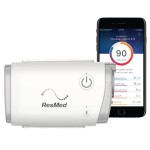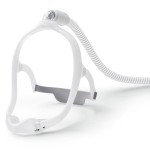Can Sleep Apnea Cause Weight Gain?
There is evidence to suggest that sleep apnea may contribute to weight gain or make it harder to lose weight. The relationship between sleep apnea and weight gain is complex and likely involves several factors.
One of the factors that may contribute to weight gain in people with sleep apnea is the effect that the condition has on metabolism. Studies have shown that sleep apnea can lead to metabolic changes that can make it harder to lose weight. For example, sleep apnea has been linked to insulin resistance, which can make it harder for the body to regulate blood sugar levels and may lead to weight gain.
Another factor that may contribute to weight gain in people with sleep apnea is the effect that the condition has on appetite regulation. Sleep apnea has been shown to increase levels of the hormone ghrelin, which is responsible for stimulating appetite, and decrease levels of the hormone leptin, which is responsible for signaling feelings of fullness. This imbalance can lead to overeating and weight gain.
In addition, sleep apnea can cause disruptions to sleep, which can lead to fatigue and decreased energy levels, making it harder to engage in physical activity or stick to a healthy diet.
It's important to note, however, that not all people with sleep apnea will experience weight gain, and not all cases of weight gain are caused by sleep apnea. Other factors, such as diet, exercise habits, and genetics, can also contribute to weight gain. If you are concerned about weight gain or sleep apnea, it's important to talk to your healthcare provider for a proper diagnosis and treatment plan.





